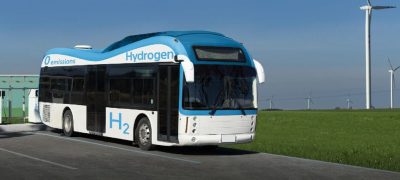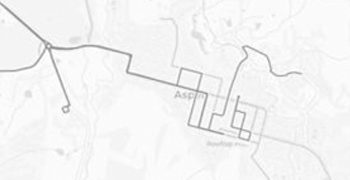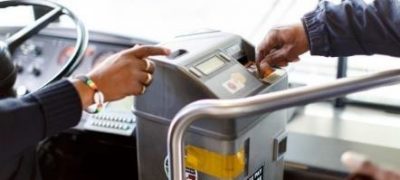Washington State Cooperative Purchasing Schedule Contract: Transit Buses
- Date: February 1, 2022
Introduction
In this Technology Procurement Resource, we are focusing on ‘State Cooperative Purchasing Schedule Contracts’ created under Section 3019 of the FAST Act. Both the State of Washington and State of Virginia have created these contracts specifically for the procurement of transit vehicles. These contracts both address Federal Transit Administration provisions, which allows the use of federal funds for purchases.
Specifically, Section 3019 of the FAST Act, “Innovative Procurement”, the General Rules states that “Procurement Not Limited to Intrastate Participants” – which means that “a grantee may participate in a cooperative procurement contract without regard to whether the grantee is located in the same State as the parties to contract.” Because this contract is a State Cooperative Purchasing Schedule Contract, and compliant with FTA guidelines, some states are able (depending on their own policies) to use these contracts for their own transit vehicle or equipment purchases.
Washington Department of Enterprise Services and Washington Department of Transportation Transit Bus Contract
In partnership with the Washington Department of Enterprise Services, Washington Department of Transportation developed a collection of contracts for transit buses (school buses excluded) and related equipment. The contract developed is a State Cooperative Purchasing Schedule Contract under Section 3019 of the FAST Act and compliant with FTA guidelines.
The contract can be used by both Washington state and out-of-state agencies; however, the procedure for purchasing off the contract is slightly different. More details can be found at the Washington DES website.
The states that have already signed a cooperative agreement with the Washington Department of Enterprise Services are: Alaska, Idaho, and Iowa. For all states, this process is relatively standardized, and states are expected to follow their own laws when signing a cooperative agreement with another state. The approval level and contracting agency vary between the different states. In some states, the cooperative agreement is executed at the state level, and in other states, the cooperative agreement(s) is executed at the individual public transportation agency level.
What Types of Buses Are Available?
The combined contract covers heavy, medium and light duty transit buses. It also includes a diverse set of fuel types including diesel, hybrid, hydrogen, and electric vehicles. Double decker buses, parts, rebuilt buses, and refurbishment/repowering services are included as well. Depending on the vehicle type, there are an array of vendors that are available to transit agencies including:
- Alliance
- BYD
- El Dorado
- Gillig
- MCI
- New Flyer
- Nova
- Proterra
- Alliance
- Creative Bus Sales
- Northwest Bus
- Schetky NW
- Alexander Dennis
- Complete Coach Works
Conclusion
Embarking on a procurement for a new vehicle type can be a heavy lift for a smaller transit agency. State Cooperative Purchasing Scheduling Contracts not only allow for more flexibility for procurements, including technology. In the case of Washington DOT’s Transit Bus Contract, not only are Washington agencies able to procure from the document – out of state agencies are able to work with the Washington Department of Enterprise Services to establish a Cooperative Purchase Agreement. This agreement allows out-of-state agencies to use federal dollars for these purchases. For most states, this process is relatively standardized and must be done at the state-level with the appropriate contracting agency. Agencies interested in this type of procurement should contact their internal procurement experts and first work with their state’s appropriate agency that handles statewide contracts for more information.
In particular, contracts like these have the potential to help smaller agencies that are working on transitioning fleets to low or no-emission fuels if they’re not as familiar with those buses. The diverse set of vehicle providers can provide a starting point for agencies seeking to research options on the market, and how well they fit with their current and future fleet needs. By understanding the battery electric bus vehicle sales and maintenance market, agencies can be better prepared in discussing their planning efforts when seeking funding from federal, state, and private sources.


